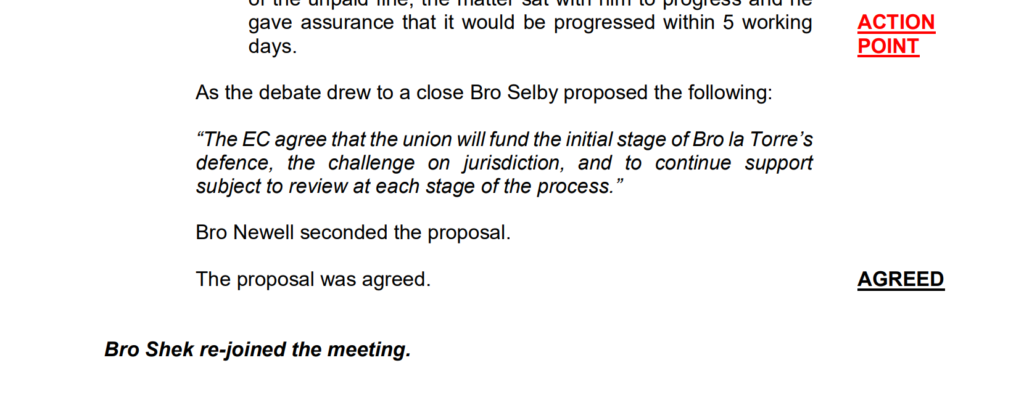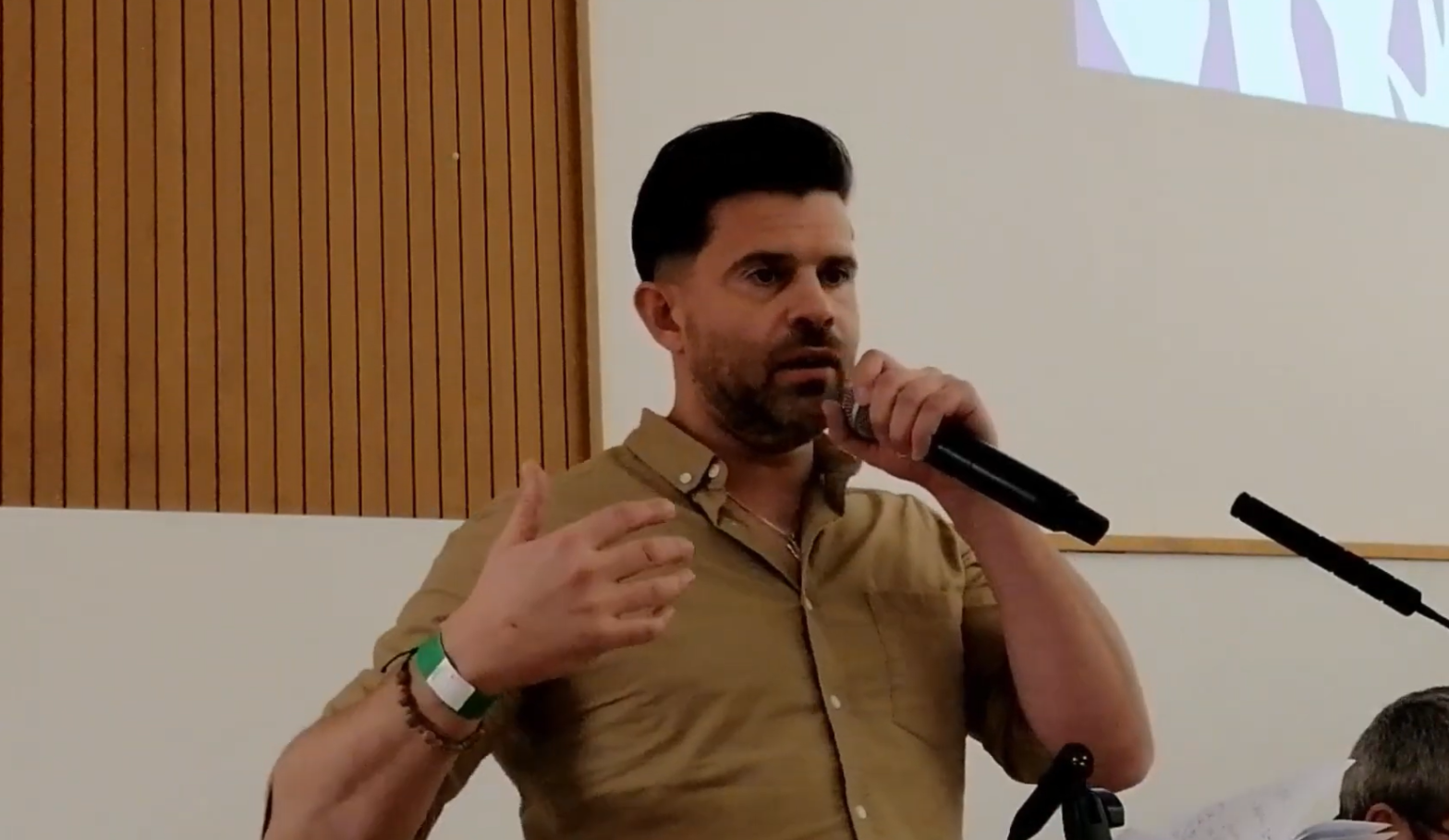A LEAKED DOCUMENT appears to show that one of the FBU’s most senior officials used thousands of pounds of members’ money to fight a PRIVATE legal claim that had been lodged against him.
A copy of the minutes of an FBU executive council meeting held in 2022, and which has been passed to this blog, suggests that national officer Riccardo La Torre made use of union funds to defend a claim of libel after he republished a false allegation about an FBU member on his personal social media account. (The member, Paul Embery, sits on the six-person steering committee of Campaign For a Democratic FBU and has assisted in providing details for this blog.)
FBU members will doubtless be appalled to learn that their hard-earned money was used, outside of all established norms, to bankroll a legal defence for a senior official in a private case in which the union had no material interest.
Legal proceedings began against La Torre after, late one Friday evening in 2021, he republished a false allegation on his personal X (formerly known as Twitter) account that Embery had stolen IT equipment belonging to the union.
The untrue allegation had originally been posted by the general secretary, Matt Wrack, on his own personal X account. After being threatened with legal action, Wrack deleted the post and issued a full retraction and apology to Embery. He also gave a guarantee not to repeat the false allegation. Wrack’s actions led to heavy criticism and calls for his resignation from members.

However, despite eventually deleting his republication of the false allegation, La Torre refused to publicly retract it, so Embery lodged a legal claim against him for defamation. Given that La Torre had republished the allegation on his personal X account and outside of his working hours for the FBU, Embery made clear in court papers that he was taking the action against La Torre as a private individual and not as a union official. Indeed, the FBU was not even named as a party in the court papers.
As it turned out, the claim could not ultimately proceed, as His Majesty’s Court and Tribunal Service (HMCTS) made a serious administrative error by incorrectly allocating it to the County Court instead of the High Court (the County Court does not have jurisdiction in defamation claims) and, by the time the court service’s error came to light, the legal deadline for lodging a claim in the High Court had expired. Embery therefore had little option but to discontinue the claim in the County Court. (Under court rules, discontinuance automatically makes a claimant liable for the other party’s costs. However, in this case, the senior management team of HMCTS carried out a detailed investigation and accepted full liability for the court allocation error. They recognised that Embery had correctly lodged the claim and apologised unreservedly to him for their maladministration. Discussions are now under way with a view to reimbursing Embery for his losses in the matter. The letter from HMCTS accepting liability and apologising to Embery was sent to La Torre’s lawyers and lodged with the court.)
But we digress.
In July 2022, just a few weeks after the claim had been lodged against La Torre, the union’s executive council met in Nottingham. The leaked copy of the minutes of that meeting show that the-then executive council member for the East Midlands region, Ben Selby, moved a proposal that union funds be used to support La Torre’s legal defence (Selby has since been elected as the union’s assistant general secretary and is known to be a close ally and friend of La Torre). The proposal was agreed.

There appears to have been no mention during the discussion that La Torre had republished the false allegation outside of working hours and on his personal social media account, nor of the fact that the union had not even been named as a party in the proceedings. This suggests that executive council members were not given the full information before being asked to consider the proposal. Moreover, no-one who supported the proposal could possibly have known at that stage whether the funds would ever be recovered. And even if they were confident in that, it would not make the taking of the money in the first place any more acceptable.
La Torre was present at the meeting, and the minutes do not show him objecting to Selby’s proposal or making any other contribution to the discussion. In addition, evidence showing that La Torre’s legal costs were met by the union was lodged in court papers and was never challenged by his lawyers. It is therefore reasonable to infer that La Torre happily accepted members’ money being used to fund his private legal costs. Indeed, given their close personal relationship, it is hard to believe that La Torre did not have advance knowledge of Selby’s proposal.
The minutes of the executive council meeting in question also show that the general secretary – whose initial false allegation sparked the whole affair – was in attendance and made no attempt to challenge the proposal to use members’ money to fund La Torre’s legal costs.
Members across the country will no doubt want to know why a substantial amount of their money was allocated to a high-ranking official to fight a private legal claim that did not affect them and in which their union was not directly involved. Members’ money is not there as some kind of slush fund to help the union’s most senior figures whenever they need a bit of cash to cover the cost of their personal legal affairs.
Can we now expect that all FBU officials will be given the same treatment as that afforded to La Torre – i.e. if they stupidly publish false and defamatory allegations late at night on their personal social media accounts, union funds will be placed at their disposable to fight any resulting legal claim? If not, why not? And where might that end?
La Torre earns over £70,000-a-year as a national officer – a salary far higher than that of the average FBU member. If he needed money to fight a personal legal battle, he should have used his own private funds – not called on the charity of FBU members.
All of this demonstrates, once again, that the FBU leadership has few scruples when it comes to spending members’ money. This blog has exposed several examples of financial misconduct at the top of the union, from secret pay-offs to employees, to the purchase of expensive fitness equipment for the personal use of officials.
This latest affair therefore comes as little surprise. But it is no less disgraceful for that.

